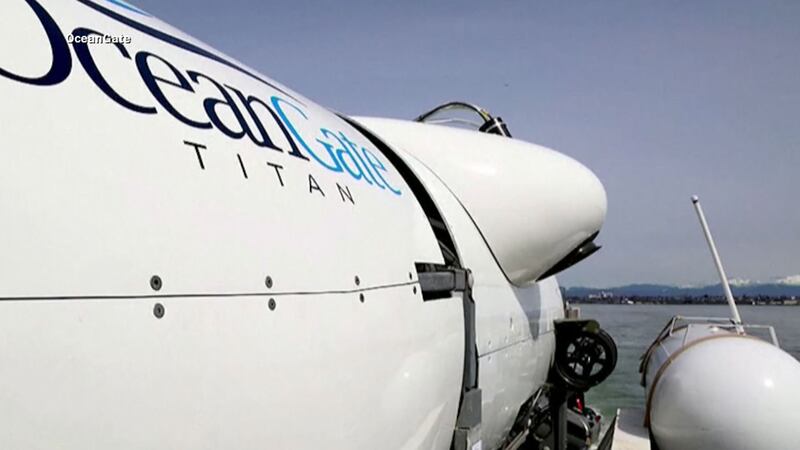EVERETT, Wash. — The disappearance of a submersible in the North Atlantic with five people aboard is bringing earlier safety concerns to light.
Everett-based OceanGate faced a 2018 complaint filed by a former employee.
According to court documents, David Lochridge claimed he was fired for expressing concerns about the vessel’s safety. The company sued Lochridge, accusing him of disclosing confidential information.
Lochridge responded with a court filing, saying he advised OceanGate to conduct more tests on the vessel’s hull.
The document added that Lochridge believed the company could “subject passengers to potential extreme danger in an experimental submersible.”
OceanGate has said the vessel can dive about 13,000 feet with a comfortable safety margin. The wreckage of the Titanic, which the missing sub, Titan, was touring, is nearly 13,000 feet below the surface.
On Wednesday morning, we learned that OceanGate admitted it did not get the vessel reviewed by the government or any safety standard group.
In 2018, the trade group Marine Technology Society wrote to OceanGate with its reservations about the sub’s safety.
According to the letter obtained by the New York Times, the group was concerned that OceanGate’s “experimental” approach could have potentially “catastrophic” effects that could impact their industry.
A year later, OceanGate posted on its website that it did not get the Titan submersible reviewed, that it fell outside both government and independent rules, and said “innovation often falls outside of the existing industry paradigm.”
CBS News obtained a podcast that OceanGate CEO Stockton Rush did last year in which he said safety is a waste.
Rush is one of the five people aboard the missing sub.
In addition, Rush was sued for fraud this year by a couple who had their expedition aboard the Titan canceled several times due to safety concerns and equipment failure.
The structure of Titan has also come under scrutiny, with a clip from last year’s CBS Sunday Morning feature about the vessel now going viral. It’s received almost 20 million views as of Tuesday evening.
Y’all please watch this. It’s a CBS story that aired a while back about that submarine that is now missing. The creators of that missing submarine are DEEPLY unserious. pic.twitter.com/B6JriITyZj
— Marie, MSN, APRN, FNP-C (@FnpMarieOH) June 19, 2023
CBS science correspondent David Rogue went onboard Titan in 2022, and at the time, he questioned the safety of the vessel, and read aloud the disclaimer he had to sign for the voyage.
“An experimental submersible vessel that has not been approved or certified by any regulatory body, and could result in physical injury, disability, emotional trauma, or death,” Rogue read aloud.
The piece also showed a game controller that was being used to navigate the vessel.
“I couldn’t help noticing how many pieces of this sub seemed improvised,” Rogue said in his report.
“We run this whole thing with this game controller,” Rush said.
But Rush stressed that critical safety elements were “buttoned down” – like the pressure vessel, which he said OceanGate worked on with Boeing, NASA, and the University of Washington.
Our reporter Deedee Sun spoke with marine salvage expert Bob Mester on Tuesday about what may have happened to the submersible and his thoughts about whether those on board can survive.
©2023 Cox Media Group








